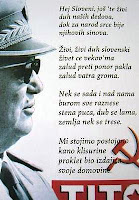The Royal Anthem of Denmark

Denmark is one of a handful of nations which have a separate "royal" anthem from the people's "national" anthem. The royal anthem is one of the oldest in the world; adopted in 1780. Special events for the royal house are marked with the royal anthem.
The lyrics first appear in Johannes Ewald's historical drama "The Fishermen" and specifically names heroes in the wars against Sweden in the 17th and 18th centuries. The composer of the anthem is unknown.
Denmark is also unique in that it and New Zealand are the only two nations in the world with two official national anthems. Officially, "Kong Christian" is both the national and royal anthem and has equal status with "Der er et yndigt land", the national anthem.
Johannes Ewald (18 November 1743 – 17 March 1781) was a Danish national dramatist and poet. Ewald, normally regarded as the most important Danish poet of the 2nd half of the 18th Century, led a short and troubled life, marked by alcoholism and poor health. The son of a Copenhagen pietist vicar and fatherless from an early age, he was educated as a theologian, but his real interest was in literature.
An unhappy love for a girl, Arendse, inspired his later poetry deeply (his description of this love is the first “modern” Danish poetic treatment of the subject). After a time as a soldier and war hero in the Prussian Seven Years’ War he was 1760 brought back seriously weakened. The following years were spent living as a bohemian and writing poetry in Copenhagen; they were also a time of alcoholism and conflicts with his mother and stepfather (for most of his life he was under their tutelage and he never took up a profession).
From 1773-75 he had a rather happy convalescence at Rungstedlund (later the home of Karen Blixen). Ewald wrote some of his best verses during this time, but a conflict with his family led to his removal to the small North Zealand town of Humlebæk (1775-77), which depressed him and worsened his alcoholism. Finally, friends brought him to Søbækshus, near Helsingør, and where he lived for some years under growing public interest and literary fame, until his early death, caused by drinking and rheumatism.
Quite until the days of romanticism Ewald was considered the unsurpassed Danish poet. Today he is probably more lauded than read; though considered classics, only few of his works have become popular.
The postcard above features King Christian and the score of the Royal anthem of Denmark.






